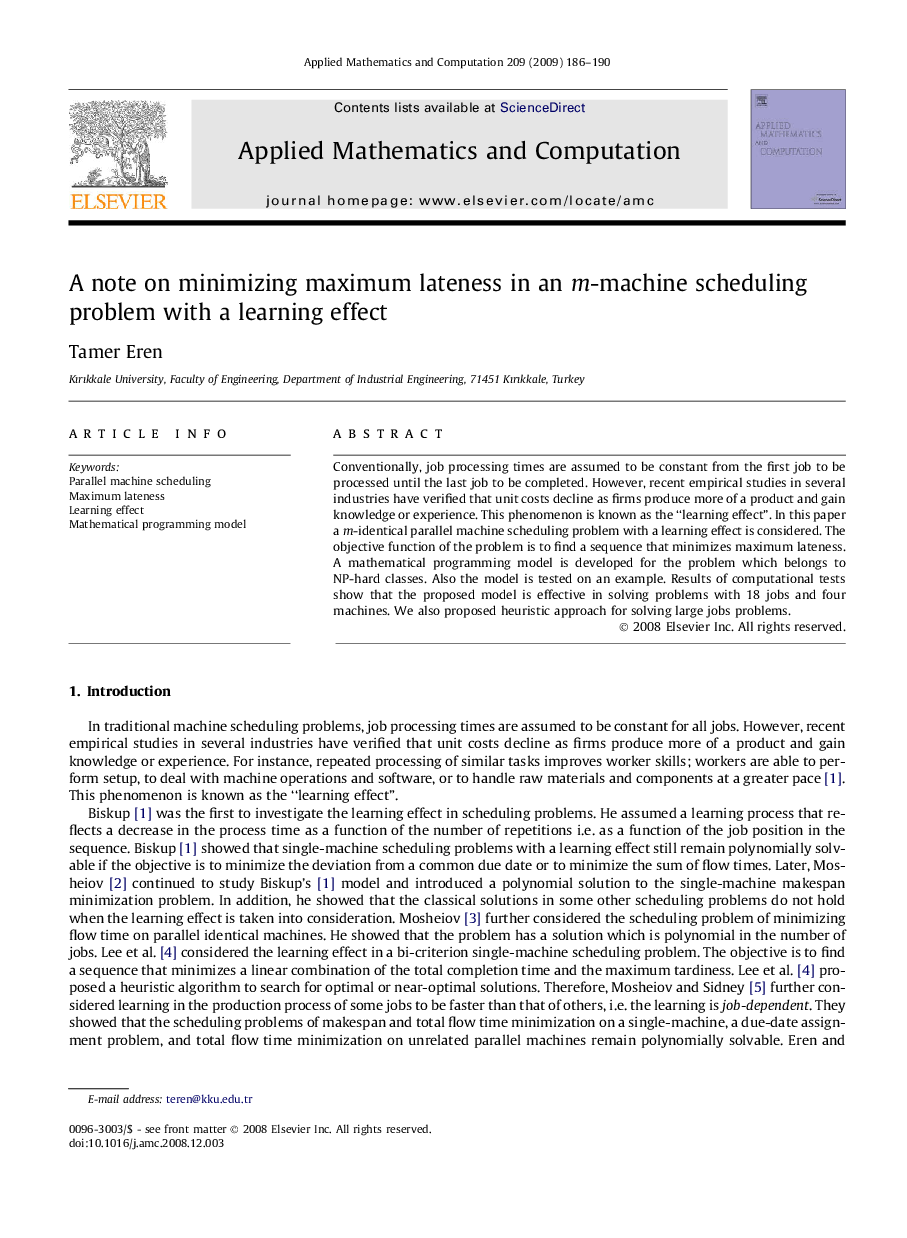| Article ID | Journal | Published Year | Pages | File Type |
|---|---|---|---|---|
| 4632962 | Applied Mathematics and Computation | 2009 | 5 Pages |
Conventionally, job processing times are assumed to be constant from the first job to be processed until the last job to be completed. However, recent empirical studies in several industries have verified that unit costs decline as firms produce more of a product and gain knowledge or experience. This phenomenon is known as the “learning effect”. In this paper a m-identical parallel machine scheduling problem with a learning effect is considered. The objective function of the problem is to find a sequence that minimizes maximum lateness. A mathematical programming model is developed for the problem which belongs to NP-hard classes. Also the model is tested on an example. Results of computational tests show that the proposed model is effective in solving problems with 18 jobs and four machines. We also proposed heuristic approach for solving large jobs problems.
